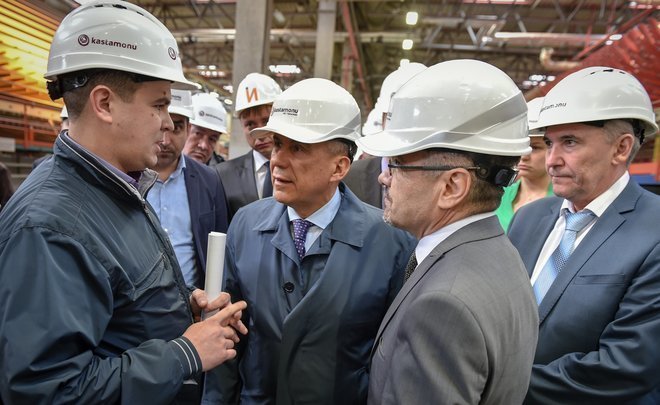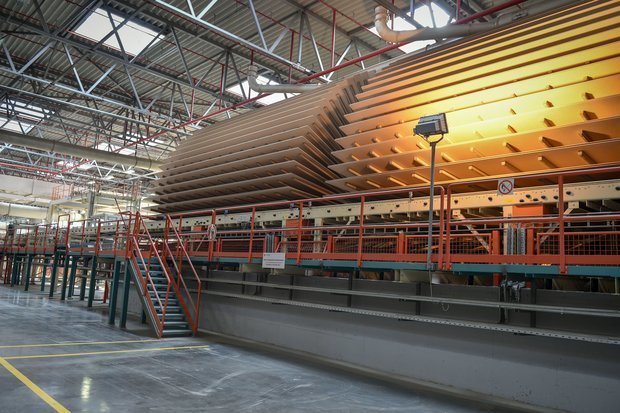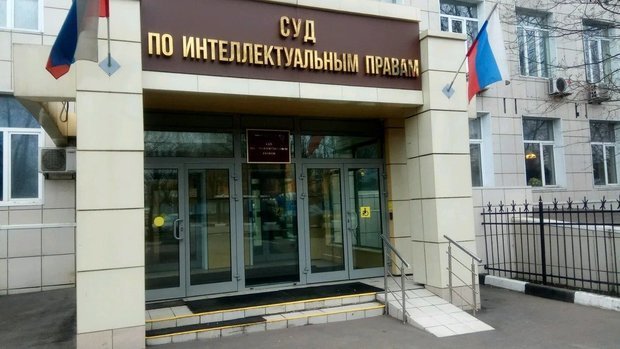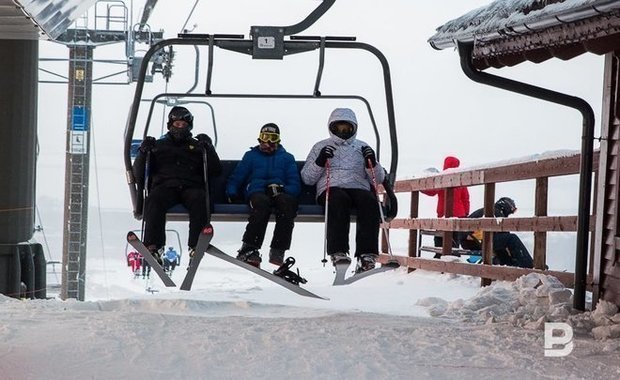How a resort in Italy interferes with the brand of Turkish laminate from Tatarstan
The plant in Yelabuga, Kastamonu, defends the rights to the trademark of its products in a dispute with Rospatent

The Turkish plant in Yelabuga, the largest wholesaler for the purchase of wood from the forestry enterprises of Tatarstan, Kastamonu Integrated Wood Industry, is defending the right to its brand. The dispute with Rospatent has reached cassation. The foreign resident of Alabuga has already convinced the first instance that the laminate they produce does not cause associations with the Italian commune of the same name, Moena, and will not deceive the Russian consumer. For the sake of winning in court, the manufacturer had to enlist the help of VTSIOM, which organised a sociological survey of Russian cities. Read the details in the material of Realnoe Vremya.
Rospatent: the brand will mislead the consumer
On Monday, Moscow considers Rospatent's complaint against the court decision obliging it to register the trademark of the Tatarstan company “Kastamonu Integrated Wood Industry”. The Yelabuga plant Kastamonu is part of the Turkish holding Hayat, which is one of the largest wood processing enterprises. In Tatarstan, it produces MDF wood slabs, laminated floor coverings, door skins and wall panels, purchasing the largest quantities of wood from local forestry enterprises.
The trade name of one of the types of products became the subject of a dispute between the wood processor and the Federal Intellectual Property Service. The supervisory authority refused to register the La Moena brand to the Tatarstan manufacturer with Turkish roots, arguing that it evokes associations with a small town in Italy.
“The verbal element 'Moena' included in the claimed designation is a geographical name, since Moena is a commune in Italy, which is located in the Trento province of the Trentino-Alto Adige region," Rospatent indicated, adding that such laminate name “is perceived as an indication of the place of origin of goods”.
At the same time, since the applicant is a Russian legal entity with a Tatarstan residence permit, registering a brand with such an element “will mislead the consumer about the place of origin of goods”, which is the basis for refusing to register a brand, according to the Civil Code (Article 1483).

Factory: Russian consumer is not familiar with Italian Moena
The Yelabuga company tried to challenge the decision, and having been refused, appealed to the Intellectual Property Rights Court. They referred to the erroneous conclusions of Rospatent about the non-compliance of the application with the requirements of the code.
“The conclusions of the administrative body about the popularity of Moena commune in Italy to the Russian consumer are not based on the evidence available in the case, they are refuted by the results of a sociological survey," the opinion of the manufacturer is given in the case materials.
In addition, the links provided by the intellectual property service to sources on the Internet without information about the number of people who viewed them are insufficient: “There are no arguments indicating that consumers have formed a stable association with the specific geographical name," the company added, noting that “the controversial designation is a fantasy”:
“The designation cannot mislead consumers, since the goods in respect of which legal protection is sought (non-metallic structures) are not produced in the municipality of Moena and are not associated with it.”

Is the resort popular with Russians?
Rospatent insisted on the opposite and asked to deny the claim to the Yelabuga plant, pointing to the legality of its conclusions.
“Moena (1,184 m above sea level) is the largest city in Val di Fassa, also known as the Fairy of the Dolomites. A ski resort is located on the territory of Moena commune, which is why it is popular among Russian and foreign tourists," the supervisory authority noted.
The Tatarstan company, in turn, pointed out that Russian legislation does not establish an unconditional ban on the use of geographical names in trademarks: “There are a huge number of geographical names in the world. Many of them are unknown to the consumer, perceived by them regardless of geographical location and as a result do not cause any associations with the product or the place of its production.”
Besides, according to representatives of the plant, based on monitoring on the Network, “Moena is an extremely unpopular tourist destination due to its great distance from the more famous cities of Italy”. And the literal translation and semantics of the word, which is a unit of the Italian language, are unknown to Russian consumers. Besides, the official language in our country is Russian, so for a wide range of consumers, the name “is nothing more than a pleasant-sounding letter combination”, which confirms its fantasy character.

VTSIOM: 94.2% of respondents have not heard the word “Moena” at all
After listening to the arguments of the parties and examining the case materials, the court agreed with the arguments of the Tatarstan company. One of the reasons was that Rospatent makes exceptions for some brands containing geographical names that are perceived as fantasy in relation to any goods, for example, “North Pole” for ice cream or “Caspian” for cigarettes (but for black caviar, it is already unacceptable).
“The refusal of state registration of the trademark cannot be based solely on the theoretical possibility of producing goods in this place," the court pointed out. “To determine whether the claimed designation is false (capable of misleading), it is advisable to analyse the semantic meaning of each element.”
Contrary to the position of the administrative body, according to the court, there is no reason to believe that Russian consumers of goods of the 19th class of the Nice Classification associate the city of Moena with the place of production of these goods.
This conclusion was confirmed by the results of the VTSIOM poll, which was conducted among residents of Russian cities with a population of 1 million people aged 18 and older who personally bought floor coverings over the past 10 years:
- 94.2% of respondents have not heard the word “Moena” at all,
- 58% of respondents do not associate this designation with anything at all.
The rest of the respondents associate the controversial designation with a wide range of various goods and services: restaurants, fashion, perfume, France, cartoon “Moana” and the like.
- 82% of respondents are not familiar with the geographical object (locality) Moena in principle.
The survey results also refute the conclusions of the administrative body about the popularity of Moena as a ski resort among Russian tourists. For example, only 1.5% of respondents admitted that “Moena” could be a ski resort/resort in Italy/the Alps.

The Court notes that the above-mentioned report shows the results of the perception of the designation as indicating/not indicating the properties, characteristics, place of manufacture and production of the floor covering. The overwhelming majority of respondents (64%) believe that they do not indicate, 26% find it difficult to answer. Only 3% considered the ability of the disputed designation to indicate the place of manufacture, and only 1% of respondents, along with such characteristics as quality, impact resistance, moisture resistance, raw materials, indicated the possibility of associating the designation with Italian production.
Rospatent's opinion on the unrepresentativeness of the VTSIOM survey due to the insufficient number of respondents (1000 people) cannot be considered justified, since the number of respondents in the sample does not affect its representativeness, the court noted, satisfying the claim and obliging the supervisory authority to register the brand.
Realnoe Vremya sent requests to the Yelabuga plant and Rospatent with a request to express their positions on the dispute, upon receipt of the answers will be published.
P.S. After the article was published, the editorial office received a response from the Federal Intellectual Property Service, we give it in full:
“Rospatent refused to register the designation 'LA MOENA' as a trademark, as it recognised it as descriptive and capable of misleading the consumer about the place of production of the goods marked by it.
Rospatent's decision is based on the fact that the claimed designation is a geographical name — the municipality of Moena in Italy, which is located in the Trento province of the Trentino-Alto Adige region.
Moena is the largest town in Val di Fassa, known as the “Fairy of the Dolomites”, as well as a popular ski resort.
This geographical object is known to the Russian consumer due to the presence of numerous Russified links on the Internet with information about it.
At the same time, the applicant is a Russian legal entity with a location in the Yelabuga district, they have not provided any evidence that they produce goods of the 19th class of the Nice Classification on the territory of the Moena commune.
Based on the above, Rospatent concluded that the provision of legal protection to the specified designation on the territory of the Russian Federation contradicts paragraphs 1 and 3 of Article 1483 of the Civil Code of the Russian Federation.”